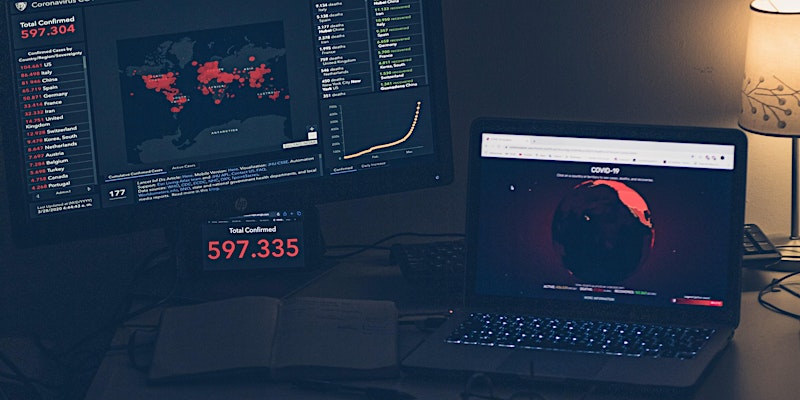A joint event between the BCS IRMA SG, London Central and London North branches.
Watch the video
Synopsis
The target audience are all those who are curious to learn how complexity science can help to reduce consequences of the current and future epidemics. No previous knowledge of epidemiology nor of complexity science is necessary.
Current coronavirus epidemic models, on the basis of which the government makes important decisions, are too simple. They don’t take into account that the propagation of infection is different in different environments. It is well known that in hospitals, retirement homes and among performers closely packed on stage and singing, the propagation is much higher than among individuals or small groups in outdoor activities, and yet, current models provide decision makers with a single propagation factor R. They also ignore the differences in effects that viruses have on different categories of population.
Viruses attack in groups and the propagation factor R depends on group behaviour of potential victims – It would be helpful, therefore, if modellers consulted the science of groups: complexity science.
The speaker will briefly review key concepts and principles of complexity science and describe complex adaptive simulators, which could be used to learn how groups of viruses respond to a variety of protection strategies applied to different categories of potential victims.
About the speaker
Emeritus Professor George Rzevski
Professor George Rzevski is Emeritus Professor, Centre for Complexity and Design, The Open University, Milton Keynes, UK. During the last 20 years, Professor Rzevski founded and managed several advanced technology companies, which design and supply complex adaptive systems for business and administration.
Until 1999 George was a full-time academic and Professor in the Department of Design and Innovation at The Open University, Milton Keynes, where he was Director, Centre for the Design of Intelligent Systems. His Centre was well funded by grants from government and industry and his Department was rated 5 out of 5 in the two UK Research Assessment Exercises.
As a tribute to his successful research career, the University established a new “The George Rzevski Complexity Science Laboratory”.
George acted as Visiting Professor at London School of Economics; Brunel University, West London; Wuhan University, China; Cologne University of Applied Sciences, Germany; Moratuwa University, Colombo, Sri Lanka and State University of Samara, Russia. He has assessed candidates for tenure on behalf of several American universities, including Stamford, Ohio and Texas; examined over 30 PhD students from universities in the UK and abroad, including Cambridge University, Imperial College, LSE, Royal College of Art, The Open University, Cardiff University, Singapore University and National University of Ireland. For several years, George has delivered a regular series of lectures on Economic, Social and Cultural Implications of Global Networks to postgraduate students at London School of Economics.
Our events are for adults aged 16 years and over.
This event counts for two hours towards your CPD. More information is available at www.bcs.org/cpd.
Event recording
Whenever possible events will be recorded and loaded onto the BCS web site and the BCS YouTube channel for subsequent viewing by IRMA members and the public, to meet the Institute’s Royal Charter commitments.
This event is brought to you by: IRMA SG, London Central branch and London North branch














